Hafsat Abiola Costello, is the daughter of Chief Moshood and Kudirat Abiola. These are names that will very likely remain etched in Nigeria’s fight for democracy. Despite the nature and cause of her parents death, Hafsat has continued to speak openly about democracy in Nigeria.
The legacy of her parents will remain forever ingrained in Nigeria’s history. But rather than hide behind the shadow of her family name Hafsat Abiola Costello continues to uphold her family legacy and create a legacy of her own
Today, she is committed to fighting for the rights of Nigerian women through her NGO the Kudirat Initiative for Democracy (KIND) in 1997. The organization seeks to promote the development of women as initiators of change by offering leadership training and raising awareness about social constraints such as violence against women.
Through her role as Special Advisor to the Ogun State Government on the Millennium Development Goals, a role which she describes as ‘great fun’, Hafsat is focused on improving maternal and infant mortality among poor families within the state. In conjunction with the commissioner for Women Affairs and Social Development, Hafsat is also working on a plan of action which involves the passage of a bill on domestic violence in Ogun State.
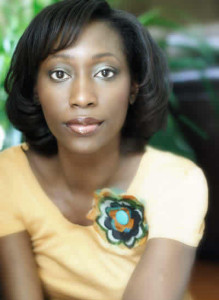 In today’s world, where women are measured all too often by superficial standards, one has to look closely to find the real measure of a woman’s character; and that’s what I did when Hafsat Abiola Costello and I sat down in my living room. There were no airs or graces -just two women, sharing.
In today’s world, where women are measured all too often by superficial standards, one has to look closely to find the real measure of a woman’s character; and that’s what I did when Hafsat Abiola Costello and I sat down in my living room. There were no airs or graces -just two women, sharing.
In the short time we spent together, Hafsat left indelible imprints on my thought process. She gave me insights on the true importance of being a woman in the 21st century, insights which will continue to guide me in years to come. I hope you enjoy reading this as much as I enjoyed the chat with Hafsat.
Ingredients of a Warrior- Heritage. Inspiration. Passion
Glory: Who inspires you?
Hafsat: Many people inspire me, but probably the primary sources of inspiration are both parents and maybe most accessibly my mother. Because when we were growing up, our father was in our presence very much larger than life. When you feel that you are human you don’t look at him and think, ‘oh maybe I should try and do some of that’, no. Because he was just so huge. It’s like looking at someone that is so big, almost like the sun, you can see it gives nourishment but you don’t think that you are going to be like the sun.
Our mother really, for much of our lives was a house wife and very simple. A mother, a wife and later on she started some businesses but of course, for her, the family was always priority. When she became involved in politics it meant a lot to us. It also inspired us because it was like seeing a normal person do something extraordinary. So when she was killed, I felt like I can try, I don’t have to make all the difference, I can just contribute what I can.
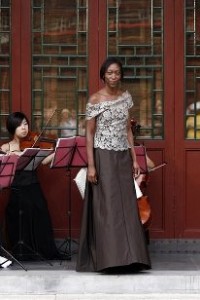 Glory: Do you find your family heritage burdensome..like with all you’ve done, it isn’t enough
Glory: Do you find your family heritage burdensome..like with all you’ve done, it isn’t enough
Hafsat: There was one prayer I saw long ago. It was a person praying to God and the person was saying to God while I am on earth just use me up. I feel myself that there is a direct link between all human beings and the Creator. I think that it is almost like the umbilical cord that ties us to our mother when we are in the womb that nobody can cut. I feel we are always connected and so we just need to place ourselves open to serve and God will use us. You don’t have to worry how it is. It may not be as much as Martin Luther King, it may not be as much as Mother Theresa. So long as we are serving, if we all do our little bit it will all count. So I never think I have to equal my father or mother. I just have to do my part.
Glory: We talked about the people that inspire you, so what motivates you?
Hafsat: I always feel like one day we are going to die and I have to give a report. I pay attention to this report. It’s not the kind of report I can give you- I can lie to you and you will never know. But this report that we have to give at the end of our lives is the one that we can never hide. Everything we’ve done is there. Everything we considered doing, everything we failed to do, everything is there. I am looking forward to it because I think it’s an opportunity. We have been blessed with life. We’ve been given this life and at the end of this life we say to the creator, here is how I lived the life you gave me.
Glory: How different do you think your life (In terms of your social and activist role) would have been if your parents were still alive?
Hafsat: Yes, probably better impact. when you have your parents. You have your champions. That’s one thing you lose when you lose your parents, your first champions are gone. So whatever it is that you think you’ve done now, had I had them I’d have done much more.
Glory: The day after your mothers passing you were on CNN speaking boldly about democracy in Nigeria. How where you able to stand up and speak so boldly about something that had imprisoned your father and killed your mother?
Hafsat: What you need to keep in mind Glory is that I was raised in a polygamous family. My mum was second of the wives and any marriage will have its up and down periods, not just a polygamous marriage. Whenever my mum went through her down periods, she would look at us her children and say that it was better for her to stay in this marriage because it provided more stability for her children. So we her children understood how much our mum had given to make sure that we would feel very secure.
There was something my mum used to do, which you cannot explain with words. It was just the way she would look at her children. She would look at us as if she saw the best renaissance painting that had ever been painted. She would just look at us with such pleasure. Consistently. And I always think of the spiritual plane. So when my mum died it struck me that my mum would be making a journey at that moment to the afterlife. She would have been dancing because in that after life there would have been drumming because they knew she was on her way and they want her to know which way to come. Then she would have thought for a second, ‘look there was so much left undone, this happened quite suddenly, maybe I should look back and tell Hafsat after all there are 6children that she will be responsible for, there is this movement…maybe I should give her some last instructions’ and then she would have paused and said ‘no I don’t have to tell Hafsat anything, Hafsat will know’ and then she will continue dancing. This freedom of sprit, this sense that she has not left anything incomplete because I can help her complete is so important to me that 24 hours is not too short for me to go on CNN and speak for her commitment to democracy.
Nigeria and the Role of Every Nigerian Woman
Glory: How is it possible for you to love Nigeria, after all it has taken from you -in terms of your parents?
Hafsat: In spite of all the things we say, Nigeria pleases me. I do not know any place to me that is as special and beautiful as this place, even with the problems. It’s like the problems are just dust and mud on perfection. That if we could just wash it of everybody would see. I don’t doubt that it’s such a perfect place. I interact with Nigerians all the time and I just love them. I love the way they are. I love the way we are with family. If Nigerians see that you don’t look well, they don’t say ‘look don’t ask her it might be embarrassing’, they just say ‘ah..wetin do you’?! You may not even know those people. We can’t look at Nigeria from its short comings, that is to fail Nigeria. That’s why I think women have to become involved in leadership. The way mothers look at their children, you can never look at your child from what the child cannot do. You look at your child from what your child does brilliantly well and build the confidence of that child to do those things it cannot do. Mothers do this naturally. I think that what Nigeria needs is nurturing not condemnation.
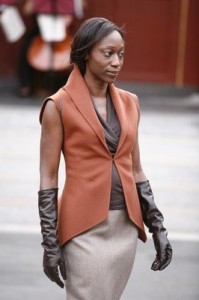 Glory: Many women are measured by superficial standards their looks, who they are married to etc. But what would you say is the true measure of a woman?
Glory: Many women are measured by superficial standards their looks, who they are married to etc. But what would you say is the true measure of a woman?
Hafsat: It’s really the internal that matters. But you are right that we are in a society that measures us by the superficial and it really traps many women..infact I think it traps all women but we all manage that cage differently. That’s why I was really moved by the letter you wrote inviting me for this interview because as I said earlier, I was raised in a polygamous setting and in that polygamous setting I saw that women can sometimes be divided but there was such beauty in my family when the women stood together. We women have to get used to holding each other’s hands. We go out and start looking at each other and we make the mistake of not saying ‘that this part of you that I see I think is so wonderful’. Because we are comparing ourselves and thinking ‘is her own better than my own’? Women are carrying so many insecurities that they don’t actually need these comparisons. All they need is affirmation, especially from each other. We have to support each other, we have to let each other know that we are there for each other. Also because our society is always telling us that women are not there for each other and women are each other’s their worst enemies. My mum was second wife, so the third wife is roughly the same age as my mum. And I pray that my mum never looks back I don’t even want her to that, but if she ever did and she sees how nice her co-wife has been to us my mum’s children, she will be happy. And her co-wife is always so clear and she will tell me that ‘your mum was not only my co-wife, she was my sister, she was my friend’. It is always important for us to affirm each other, every time, we must.
Let me tell you why it is critically important that we do it. Women’s energy and women’s voices is what is missing in Nigeria’s transformation now. There is something that women bring to the table that if you don’t have them at the table you won’t get this critical element. And you can’t have them at the table as token’s, you have to have them at the table as a critical mass, and that is when they change the conversation. They will change it in a way that the men will not feel like ‘these women have come’ instead the men will just feel that this is a better conversation. They will not feel threatened by it they will feel affirmed and empowered by it, so it’s a win win- every body wins, the women will win, the men will win and the country will win
The journey to womanhood…finding yourself and your partner
Life is a journey, they say. But for women, our journey takes on certain nuances, many of which are dictated by society. who we should be, who and when we should marry, where we should work…these are some of the constraints, or as Hafsat puts it ‘cages’ women find themselves in today. Hafsat’s advice is simple yet defiant, live the life your creator has given you….
“Live your own life, make your own choices and don’t take no for an answer. ‘No’ is just the beginning of the exploration. It cannot be your limit. You will define your own limit and chart your own way. You must chart your own way.”
Glory: If you could give your younger self some advice, what would it be?
Hafsat: I would have said to myself in my high school years, lose the interest in boys and focus. There was a saying when I was young, ‘don’t make a list of all the qualities you want your husband to have, make a list of those qualities you admire that you wish him to have and cultivate it in yourself’. Because that focus in boys was starting early and is shaped around the idea that, we are always going to be the side news. The guy is going to be the headline and we should be working very hard to make ourselves attractive so that the right guy pays attention to us because we are going to be living through him. a lot of women today do that. They just want to marry a certain kind of guy then the guy will be the news and then they support the guy and that’s not bad if it works for them, but you give up so much in yourself in trying to fit somebody else.
hafsat 4Glory: You were 31 when you got married. Were you under any pressure to get married?
Hafsat: The whole thing of being an activist was a turn off for many people. Some people would be like ‘we like that but not for a wife’…. if it takes you 31 years to find a soul mate, it takes 31 years. If it takes 35 years, it takes 35 years. Marriage is such a difficult institution, I find, because it’s the melding of two characters and no matter how you want to go about it, it’s going to be challenging on some level. There are times where it will be hard, times where you’ll be wondering ‘what you were thinking’. So it is important that no matter how it is, you don’t sit down and say ‘but who sent me here’. No matter what is going on in my marriage I know that nobody pushed me in that marriage. I know that, I, of my own free will, chose this man and that gives my husband a very powerful position. Which I am really glad about, otherwise you can just imagine that in a midst of an argument I’d say ‘is it not because somebody told me to marry you’, but no, my husband does not have to worry about that because I chose him… I remember, I used to think I wanted a guy similar to my dad. Then I had a guy I was seeing, who was a wealthy business man similar to my dad and everything similar and I just kept looking at this guy like what planet is this guy from, how is this relationship going to work?
Sometimes when you have the wrong relationship, it is actually better for you than having the right one too quickly because maybe the right one you won’t even appreciate it. So after that, that’s when Nick began to express interest. In every dimension he was different from me. Had I not had that first relationship, I would have thought that what I needed was someone Nigerian, raised in a similar cultural milieu. Then I saw that you could have somebody that ticked all the boxes and yet on a soul level you do not click. And then Nick came along and he didn’t click any of the boxes, none. He is not African, not continent wise not even country wise, culturally not, racially zero.
Let me tell you what Nick did that convinced me. In the beginning we were friends, so when he said he was interested in being more than friends, I was surprised, because I didn’t see it coming ….. I told him very clearly then that the furthest our relationship could go was friendship, he nodded and smiled and we left it. Then I went to the US for 3 months and Nick wrote me an email or should I say letter, everyday. I won’t say an email, because an email can be a paragraph, no, he wrote me like 3 pages everyday while I was away. I have to say that by the third month it was just clear to me that on a spiritual and soul level we were linked. It was like seeing something that really resonated with me and it was just the oddest thing because on every level that is superficial, even not superficial, that is substantial we were not the same. But on this deepest level we really were aligned and I decided that that level was the most important one.
Even now, we’ve been married for about 8 years, even when things come up I just trust Nick and that’s very important. I trust his gentleness, integrity and I trust the way he reasons and that helps a lot. I trust the depth of his character. It doesn’t mean that we do not have disagreements.
Glory: What is your advice to the next generation of women?
Hafsat: Live your own life, make your own choices and don’t take no for an answer. No is just the beginning of the exploration. It cannot be your limit. You will define your own limit and chart your own way. You must chart your own way. In the end, the choices you make may disappoint many people, it may even disappoint the majority of people. But so long as that you did not disappoint yourself in taking ownership of your life. You cannot be defined by the limitations of people’s minds today. You have to think of the future, we are trying to set a standard for the women that are going to come later. We are trying to come out of a cage and embrace freedom with responsibility and also with a sense that it is our time.
So everything about the way we did things before we have to interrogate. It is not everything we will sweep away but nothing should be accepted as is. We must interrogate to know, ‘does this suit me’, ‘can it work for me’ and if it cannot work for me what else can I do instead? Let us trust our creativity and one another. Women are so good at putting up a front. Even if a woman has put up a front that doesn’t seem supportive of you, still reach out to her. Because we understand that experience of being women and if somebody reaches out to you as a woman then you must do something.
I used to think to myself, that it took my mum the same number of months to produce me as it took to produce every male child that she had. It took the same amount of work, I demanded the same amount of blood and nutrients from her body. I think of the Creator who is infinitely wise and perfect and I thought if the Creator wanted to send a message to us that women are inferior, if it took nine months to create men, it should take maybe 6 months to create women. Yet it took the same amount, everything. That’s already clear that then we must value this people in their own right.
So you must hold firm to your own right to your life and you must protect it with everything you have because in the end if you are living somebody else’s life, fulfilling somebody else’s agenda and interests, when you get to the Creator at the end of your life and you have to make your report, what are you going to say…? To me that’s just the definition of failure. No, own your life and live it!
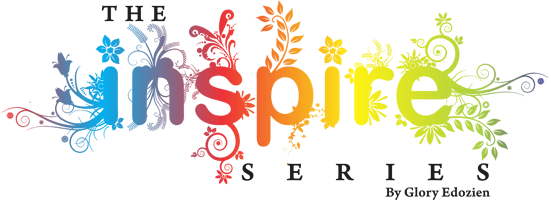
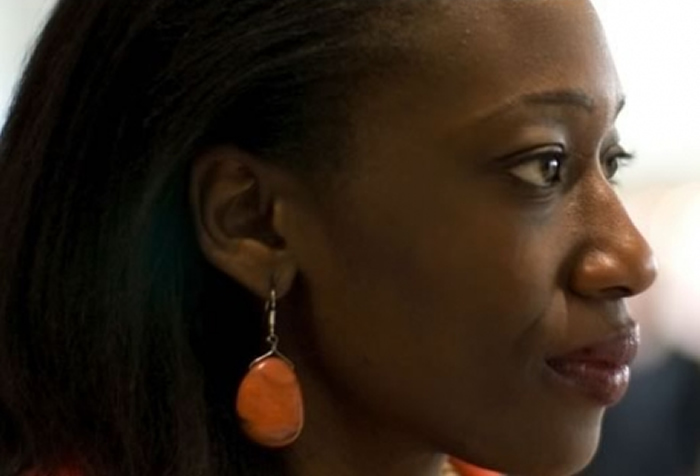
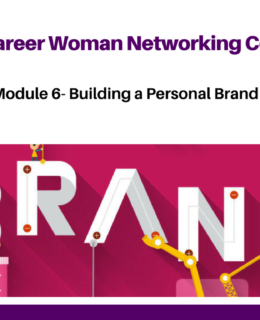
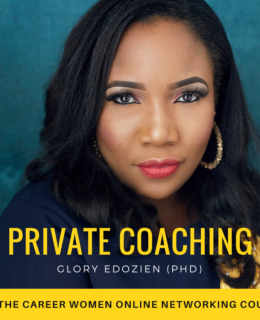

1 Comment
Fine Little Day
Leave a Reply